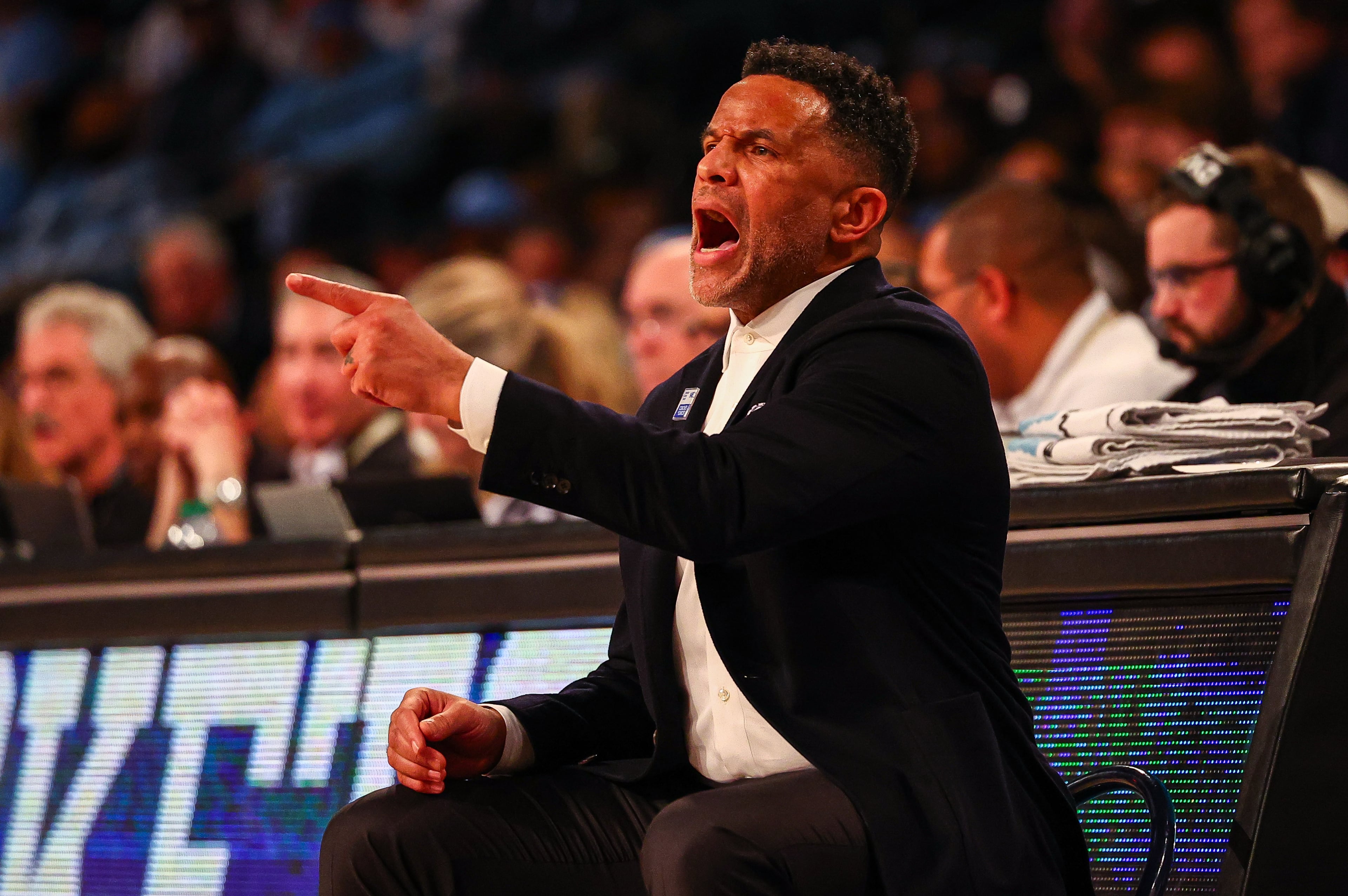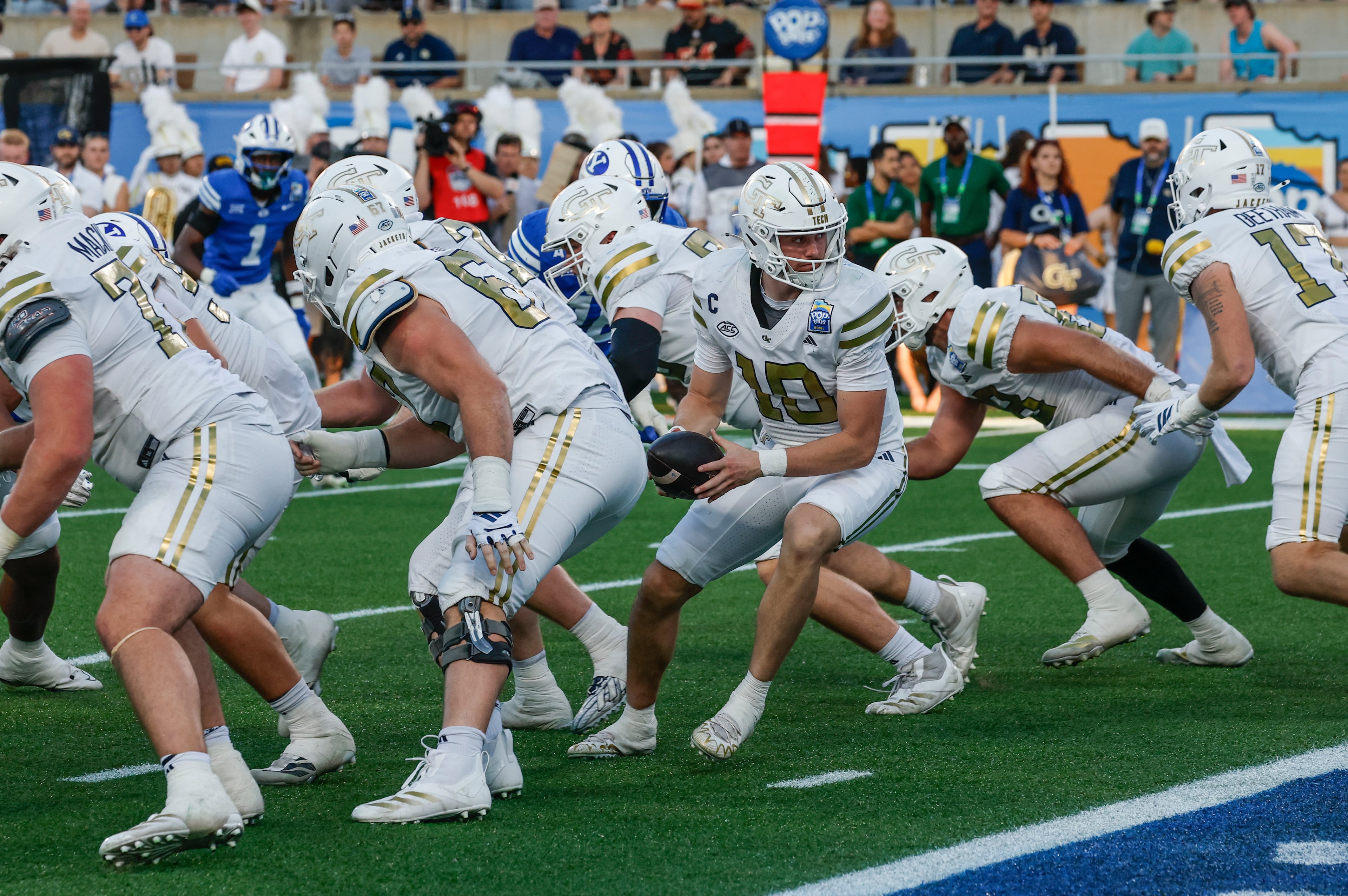Defense ailing as Georgia Tech loses fourth in a row
The problems for Georgia Tech after 10 games are many. The Yellow Jackets sorely miss the leadership and playmaking of Moses Wright and Jose Alvarado. Opponents are honed in on stopping guard Michael Devoe, and there hasn’t been a consistent second scoring option to take pressure off of him.
And, Tech’s defense, which has been a bedrock for coach Josh Pastner’s teams, has not been up to standards. Hence, the Jackets are 5-5 as they go into their final two non-conference games of the regular season, Tuesday at home against Georgia State and Thursday against Alabama A&M.
“We’ve just got to get a win,” Pastner told media following the team’s 67-53 loss to then-No. 10 USC in Phoenix on Saturday in Phoenix.
The Jackets’ 96.8 defense efficiency score, per KenPom, is ranked 92nd in Division I. Tech has finished with a higher ranking in each of Pastner’s first five seasons, and the level of competition figures to ramp up once the Jackets dive into ACC play Dec. 29 at Syracuse. The Jackets have often played at a high level on the defensive end with Pastner, finishing sixth in defensive efficiency in his first season (2016-17), 16th in the 2019-20 season and 43rd in 2018-19.
A problem for the Jackets – aside from playing four consecutive opponents in Wisconsin, North Carolina, LSU and Arizona State who are a combined 40-5 – is that they’re not doing anything particularly well on the defensive end. Last year’s team, for instance, didn’t defend the 3-point shot well, which Pastner’s teams have typically been effective.
But, led by ACC defensive player of the year Jose Alvarado, the Jackets led the ACC and were eighth in the country in steals per game, simultaneously denying opponents scoring opportunities while creating their own transition chances.
Through Sunday’s games, Tech was tied for 273rd in blocked shots per game, 238th in defensive field-goal percentage, 144th in steals per game and 130th in defensive rebounding percentage. The Jackets aren’t excelling on offense, either, but defense has generally been the strength of Pastner’s teams.
“This doesn’t dictate our season at all,” Devoe said. “Last year, we had a stretch, too, in the beginning of the season that didn’t happen the way we wanted it to. We’ve just got to keep getting better.”
Part of the issue is that Tech has not played its trademark 1-3-1 defense, which has often thrown off opponents, as frequently as it has in the past because Pastner is relying on a number of players new to the team. A strength of the scheme is that it has been able to challenge shots on the perimeter but also maintain a shot-blocking threat at the rim. (As Pastner likes to share, Tech’s center or forward has been on the ACC’s all-defensive team each of his first five seasons. Center Rodney Howard is a capable defender, but might be more effective the more the Jackets can use the 1-3-1.) The Jackets have played more man-to-man defense this season with limited effectiveness. Tech used the 1-3-1 against USC on Saturday, but execution was flawed, according to Pastner.
“There were a couple things where some of our rules weren’t exactly followed, and when that happens, when there’s a breakdown, that allows an open shot,” Pastner said.
USC was 9-for-19 from 3-point range while Tech was 5-for-19 despite having clear looks at the basket. Pastner called it the difference in the game.
Playing more effectively on offense would obviously help, also. Pastner is eagerly anticipating the return of guard Bubba Parham from surgery to repair a torn meniscus in his knee. His hope is for Parham to be back against Syracuse.
Georgia State is 6-4, although three of the Panthers’ wins have been against teams either in NAIA or the National Christian College Athletic Association.
“We’ll keep getting better,” Pastner said. “We’re young in a lot of areas. We’ll keep fighting and we’ll keep improving.”
Daily Jackets: The AJC presents a daily look at one news item about Georgia Tech athletics to start your morning.



